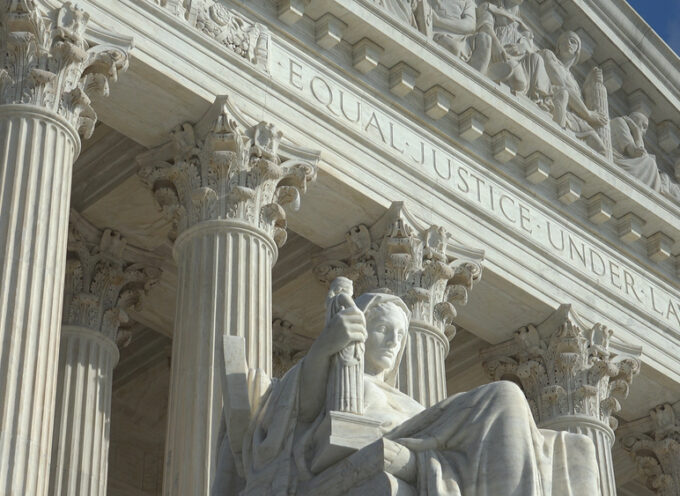“Public righteousness” is not a phrase Christians talk about very often. But we ought to. If God created the world through Jesus—and he did—then Jesus’ Lordship is as wide as creation. And if Jesus’ Lordship encompasses the entirety of creation, then it extends beyond our private lives into our public words and actions.
For this reason, local churches should be “formation centers” for public righteousness. There are two main ways that the church serves as a formation center, and three types of fruit that will be borne when it does so.
Corporate Worship
One way the church serves as a formation center for public righteousness is by gathering for corporate worship. When the church assembles, it declares that “Jesus is Lord” and, by implication, that “Caesar is not”. This declaration is a preview of Christ’ coming Kingdom, in which he will reconstitute the world under a reign of justice and peace. Additionally, when the church gathers, it does so as a community of believers committed to loving and serving one another as a preview of Christ’s coming kingdom, when we will be citizens with one another under his just and peaceful reign.
Missional Sending
Another way the church serves as a formation center for public righteousness is that it sends its members out into the world as ambassadors of the King. During corporate worship, our hearts are reoriented “true north” toward Christ. Religion is heartfelt, being located in the depths of who we are, so when our hearts are reoriented toward Christ, the effects of that reorientation radiate outward into the whole of who we are, including our public lives. Sunday morning worship prepares me for Monday morning public life; it helps instill in us the wisdom and virtue necessary for ballot decisions, letters to the editor, coffee shop conversations, Facebook exchanges, blogposts, or workplace interactions.
So the roots of public righteousness are firmly planted in the soil of the church’s corporate worship and its missional sending. But what are the public fruits of righteousness? How does the church’s gospel proclamation shape our political engagement and public life? Of the many answers that can be given, this article will mention three:
Three Public Fruits of the Church’s Ministry
First, gospel-centered local churches will remind their members that our ultimate allegiance is to Jesus Christ rather than to any particular political ideology, party, or platform. That doesn’t mean that we can’t be active in political parties or supportive of political candidates. We can and often we should. But in our political engagement, we should always be reminded that our political commitments are tentative in light of our loyalty to Jesus Christ.
Second, gospel-centered churches will help their members understand that our allegiance to Christ will cause us to reframe aspects of political parties’ agendas. For example, the gospel reframes our view of wealth, revealing to us that money is neither our savior nor our security and causes us to be radically generous to those who are financially disadvantaged. Or, consider power. Our allegiance to Christ causes us to use our power to love others and decenter ourselves, rather than exploiting others and promoting ourselves. Finally, consider life. The gospel reframes “life” in such a way that we refuse to take the life of an unborn baby, on the one hand, but do not rush to war, on the other hand.
Third, gospel-centered churches cultivate wisdom and virtue. Our allegiance to Christ causes us to consider the way in which we articulate our views on politics and public life. We are concerned not only with the truth content of our stances, but with the way in which we communicate them. We refuse to mock and demean our opponents, to purposely misrepresent them, to demonize them, or to question their motives unfairly. We recognize what a deep and ugly irony it is when we purport to represent a gospel of grace but articulate our views in ways that are profoundly un-gracious.
A Light to Our Nation
As Peter instructs in 1 Peter 2:9-17, God calls his church to be a light to the nations. That light-shining function extends beyond corporate worship and private ethical concerns to include the totality of our public lives, including political engagement. For that reason, the church—as a formation center for public righteousness—must adopt a posture toward society that is not one of condemnation or contempt, but one of servitude and willingness to work out the implications of the gospel for the common good of our nation.
Subscribe
Never miss a post! Have all new posts delivered straight to your inbox.







